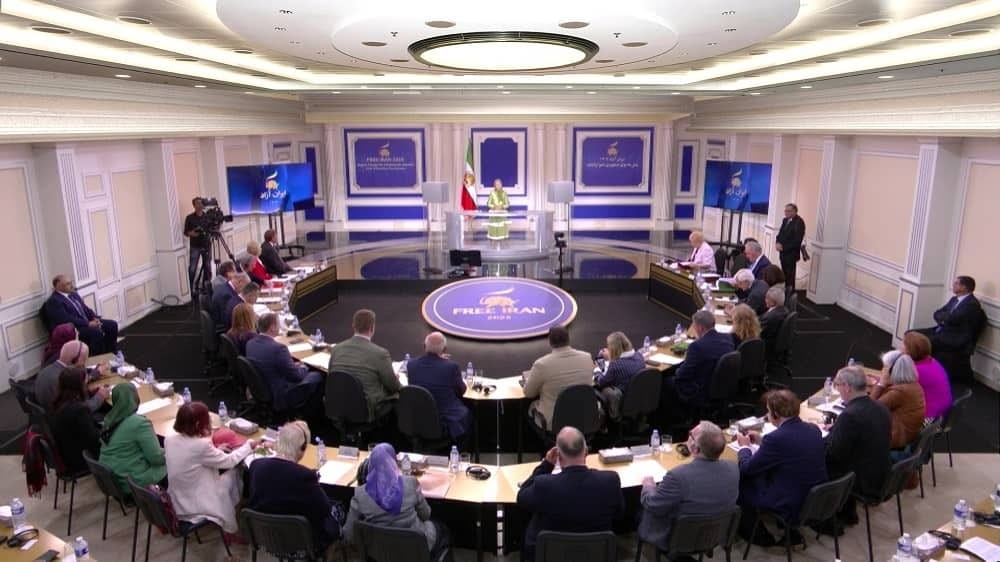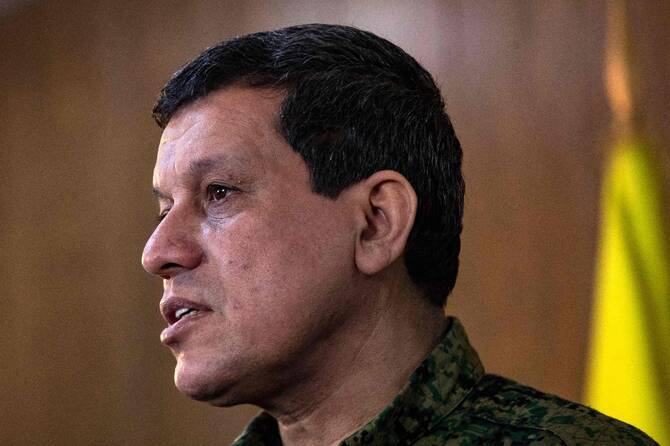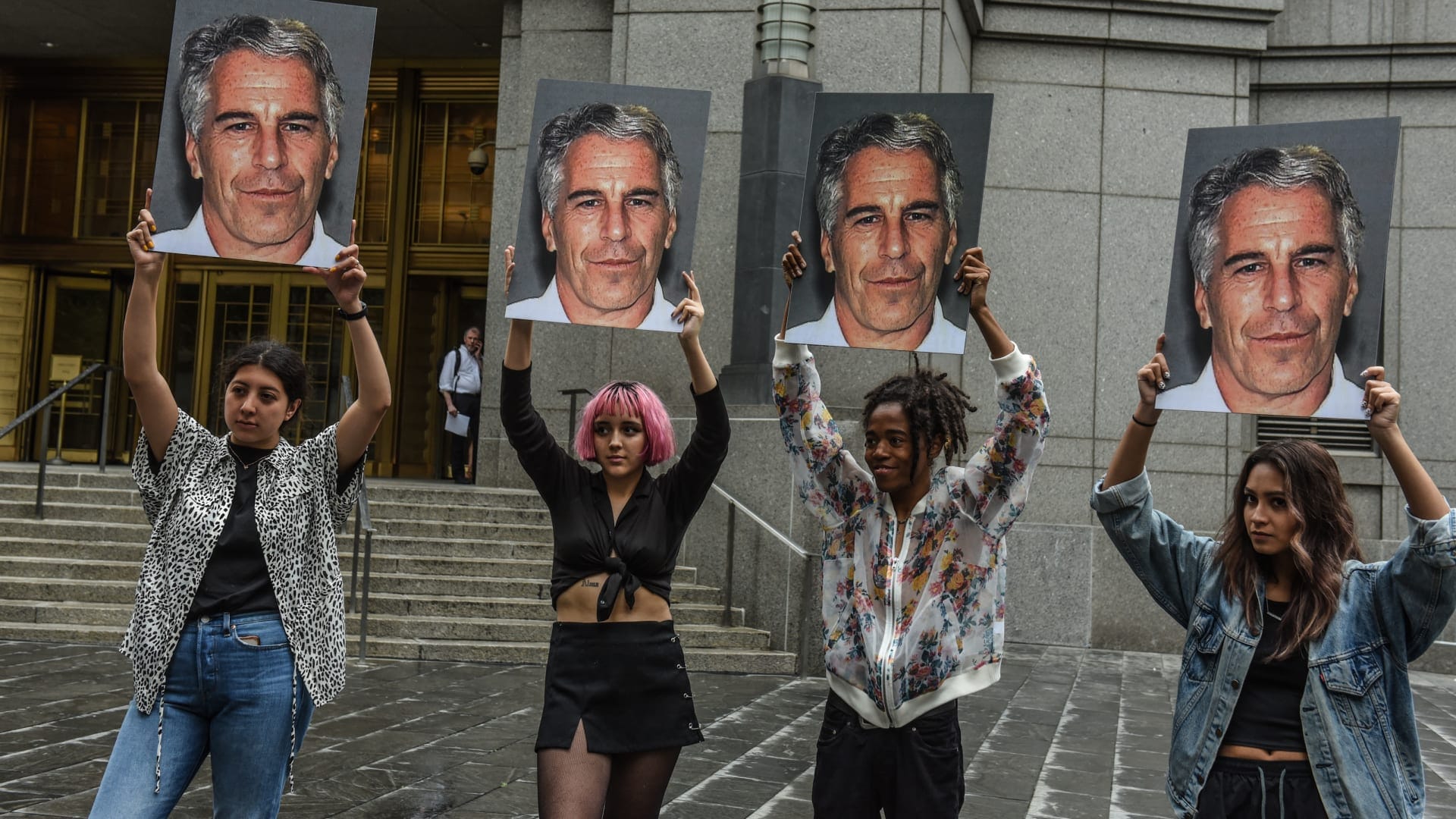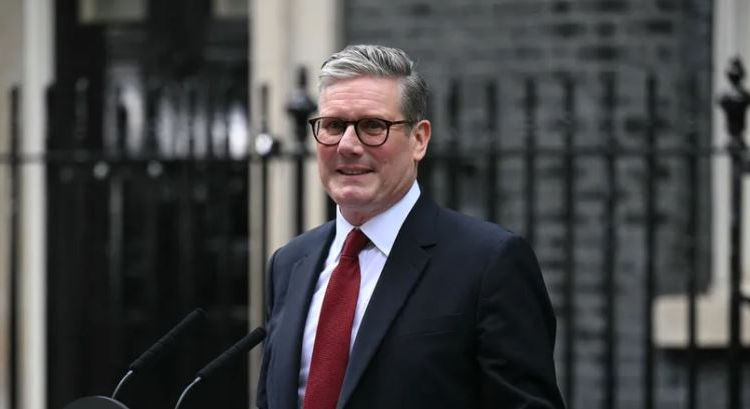International Dignitaries Rally for a New Iran Policy, Support NCRI as Democratic Alternative

Paris, France – On Saturday, May 17, 2025, an influential international conference convened in Paris, uniting parliamentarians and prominent political figures from a wide array of countries including the United Kingdom, Canada, Ireland, Malta, Switzerland, Romania, Portugal, and the Netherlands. The central theme of the gathering was the urgent need for a new, decisive international policy towards Iran, with a strong emphasis on supporting democratic change and recognizing the National Council of Resistance of Iran (NCRI) as a viable alternative to the current regime.
The event served as a significant platform for global lawmakers to voice their concerns over the deteriorating human rights situation in Iran, the regime’s escalating domestic repression, its destabilizing regional activities, and its persistent pursuit of a nuclear program. A recurring call throughout the conference was for Western governments to adopt a firmer stance, including the proscription of the Islamic Revolutionary Guard Corps (IRGC) as a terrorist organization.
Mrs. Maryam Rajavi, President-elect of the NCRI, delivered the keynote address, welcoming the international dignitaries and acknowledging their steadfast support for democratic change in Iran. She asserted that four decades of appeasement towards the Iranian regime had only hindered progress, emphasizing that the regime is fundamentally incapable of reform. “The religious dictatorship ruling Iran is the source of terrorism and warmongering in the region,” Mrs. Rajavi stated, outlining that the regime will not cease its oppressive practices, nuclear ambitions, or regional interference, as these are integral to its survival.
She highlighted the regime’s fear of popular uprisings and the readiness of the Iranian people and their organized Resistance to bring about change. “The real solution is the overthrow of the regime by the people of Iran and the Iranian Resistance,” Mrs. Rajavi declared, presenting the NCRI and its core component, the People’s Mojahedin Organization of Iran (PMOI/MEK), as a democratic alternative with a clear plan for a future republic based on separation of religion and state, gender equality, and a non-nuclear Iran. She called on European nations to “Add the Revolutionary Guard Corps (IRGC) to the list of terrorist organizations,” “activate the snapback mechanism” regarding UN resolutions, and “recognize the legitimate resistance of brave young Iranians fighting the IRGC.”
Conservative MP Bob Blackman, Chairman of the 1922 Committee, who spearheaded a statement signed by 560 UK lawmakers, emphasized the critical need for a policy shift. “It is time to change course on Iran policy. We should align our policy with the major shifts that have occurred in Iran and the region. We must stand with the Iranian people and the organized resistance, led by Maryam Rajavi and her Ten-Point Pan,” he stated.
Mr. Blackman presented a book signed by over 190 MPs supporting a free Iran and the NCRI’s Ten-Point Pan. He reiterated the call for the UK government to proscribe the IRGC, citing its terrorist activities, including a recently foiled plot in the UK. He asserted, “The only diplomatic relations we need are with the NCRI, Madam Rajavi, and the Iranian people.” He expressed a strong hope for the future: “Next year, we’re going to a free and democratic Tehran.”
Former UK Cabinet Minister, Rt Hon David Jones, highlighted the NCRI’s crucial role in exposing the Iranian regime’s clandestine nuclear program. He criticized the West’s decades-long diplomatic efforts, noting, “despite over two decades of diplomatic efforts, Iran now possesses enough uranium for multiple nuclear weapons, marking a significant failure of Western diplomacy.” Mr. Jones stressed the urgency of utilizing the JCPOA’s snapback mechanism, stating, “If the West is serious about stopping a nuclear armed Iran, the E3, that is the UK, Germany, and France must trigger the JCPOA snapback mechanism without delay.” He urged Western governments to recognize the Iranian people’s democratic aspirations, support Mrs. Rajavi’s Ten-Point Pan, and engage with the NCRI as the legitimate democratic opposition.
Baroness O’Loan argued that the regime’s severe repression, especially against women, signifies its fear of another uprising. She praised Mrs. Rajavi’s leadership and the NCRI’s Ten-Point Pan as the roadmap to a free republic. Presenting a book from the House of Lords, she announced, “over 330 members of the House of Lords have signed today’s parliamentary endorsement of the statement for Iranian freedom.”
Baroness O’Loan condemned the record number of executions and the regime’s deceptive nuclear fatwa, calling for the UK to proscribe the IRGC. “The UK must now proscribe the IRGC as a terrorist organization,” she urged, looking forward to welcoming Mrs. Rajavi to Westminster as President of a free Iran.
Former Member of Parliament Mark Williams paid tribute to the bravery of Iranians fighting for freedom and lauded Mrs. Rajavi’s leadership. “When the history of Iran’s future democratic republic is written, it will record how you and Masoud Rajavi organized, led the cause, led dissent, led a determined resistance, and built a viable democratic alternative,” he remarked. He underscored the Iranian people’s rejection of both Shah’s dictatorship and the current religious tyranny, referencing slogans from uprisings. Mr. Williams strongly advocated for the proscription of the IRGC, stating, “if ever there was a case to proscribe an organization for terrorism, it is the IRGC.”
William Powell, Member of the Welsh Assembly, expressed solidarity with the Iranian people and highlighted the support from Welsh parliamentarians for the NCRI’s Ten-Point Pan. “What unites us in this room today is a belief that Iran will again and again soon be free. And it will be free on the basis of Madam Rajavi and the program for government, the Ten-Point Plan,” he stated. He emphasized the importance of the Ashraf 3 community and urged democratic governments to recognize the legitimacy of the NCRI’s provisional government and resist “naive and frivolous negotiations with the current regime.”
Former Member of UK Parliament Martyn Day spoke as a human rights activist, condemning the Iranian regime’s extensive use of the death penalty as “state sanctioned terror.” He praised the courage of Iranian Resistance Units and women activists, advocating for a foreign policy based on principles. “At the heart of that policy must be support for Iran’s Democratic alternative, which is yourself, madam Rajavi, and the NCRI,” he declared, fully backing the Ten-Point Pan. He called for recognizing the NCRI, designating the IRGC as a terrorist group, and establishing an international tribunal for the regime’s crimes.
Member of UK Parliament Martin Vickers voiced his growing support for a free Iran and Mrs. Rajavi’s Ten-Point Pan. “If we keep up the pressure, we will secure democracy and freedom in Iran. So let’s move forward for a free Iran now,” Mr. Vickers affirmed, committing to support moves for a free Iran in the Westminster parliament.
Lord Dholakia, a long-standing supporter, shared an instance of the UK Parliament’s Joint Human Rights Committee hearing evidence from an Iranian Resistance member about death threats from the regime. He urged the UK government to work with allies to refer Iran’s human rights dossier to the UN Security Council and support a special UN tribunal for Iran.





